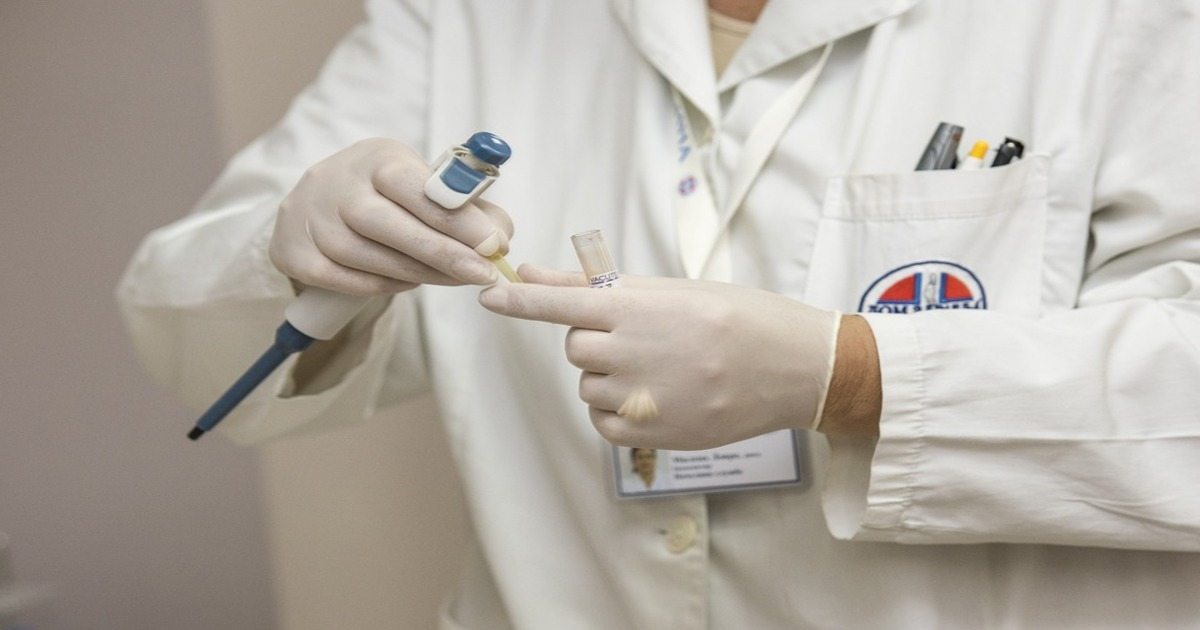Category: Mesothelioma

Turning Off Certain Enzymes Could Stop Mesothelioma Growth
Researchers realize that one of the best ways to fight cancer is to stop it from growing and metastasizing in the first place. However, finding the right way to do that is not easy. Now, researchers believe that by turning off certain enzymes they can stop cancer cells from dividing. This discovery may stop cancer in its tracks, and bring new treatments that could extend the lives of mesothelioma patients.
Researchers from Uppsala University, Karolinska Institutet, and the University of Oxford, began to look deeper into finding a way to switch off enzymes as a promising strategy to fight cancer. Tailored drugs are needed to shut down an individual enzyme, but before they could look at new therapies, they needed to better understand how cancer-fighting drugs get to their targets.
The team of scientists turned their focus deep into the cells to a cell membrane protein dehydroorotate dehydrogenase (DHODH), a key anticancer target known to play a role in cell proliferation, according to a Jan. 19 press release from Uppsala University. They conducted a series of tests to determine how lipids, or building blocks of the cell membrane, and drugs bind to the DHODH enzyme. By better understanding this mechanism, they can better understand how to drive drugs directly to the disease.
“To our surprise, we saw that one drug seemed to bind better to the enzyme when lipid-like molecules were present,” says assistant professor Michael Landreh, Karolinska Institutet. In addition, they found that a lipid present in the mitochondrial respiratory chain complex, or the cell’s energy source, binds to the enzyme. The researchers concluded that DHODH may “use special lipids to find its correct place on the membrane.”
Research suggests that tumor metastases are responsible for approximately 90% of all cancer-related deaths. Funding research to find ways to have drugs home in directly on the disease brings hope to every cancer patient. In the case of mesothelioma, an incurable, asbestos-caused cancer, that quickly spreads to other organs leaving patients with few treatment options, halting cancer growth could lead to extended survival. Survival is typically about one year.
“By studying the native structures and mechanisms for cancer targets, it may become possible to exploit their most distinct features to design new, more selective therapeutics,” says Sir David Lane, Karolinska Institutet.
To find out more about this research, read the full study in the Jan. 18 issue of Cell Chemical Biology.
http://www.cell.com/cell-chemical-biology/fulltext/S2451-9456(17)30461-0

Combination of Liquid Biopsy Tools Improves Results in Detecting Biomarkers, May Lead to Better Selection of Targeted Mesothelioma Treatments
Researchers continue to look for an effective tool that can be used for the early detection of cancer and to track the effectiveness of treatment. Now, one company reports that by pairing its liquid biopsy analyzer tool with another company’s genetic data analysis tool, the resulting tests proved to be nearly 100% accurate. This is another step in using blood tests to help guide personalized medicine for lung cancer and pleural mesothelioma patients.
In a press release prior to the Fifth AACR-IASLC International Joint Conference held earlier this month in San Diego, Biocept, Inc, reports when it paired the Target Selector ctDNA lung cancer assays with the Thermo Fisher QuantStudio5 (QS5) real-time PCR instrument results of the detection of key lung cancer mutations resulted in “more than 99% sensitivity and more than 99% specificity.”
“The ability to rapidly and accurately assess the molecular status of a patient’s tumor using a simple blood draw can be a critical factor in the selection of individualized targeted therapy,” said Biocept’s Senior Vice President and Senior Medical Director Veena Singh, MD. “Our tests can further provide for the monitoring of response to therapy over time without invasive tissue biopsies that can be difficult to perform in patients diagnosed with cancer.”
The tests targeted EGFR, KRAS and BRAF mutations that have been shown to be present in lung cancer and in some pleural mesothelioma tumors as well. According to some reports, mutations of the KRAS gene (Kirsten rat sarcoma viral oncogene homolog) are found in 20 to 25 percent of lung cancers. The EGFR gene is overexpressed in more than 50% of pleural mesothelioma patients, and in approximately 15% of lung cancer patients, and is one of the primary targets for bringing personalized care to cancer patients.
With the advent of personalized therapies that target specific biomarkers, ensuring that effective tools are available to quickly and easily identify treatable mesothelioma markers is critical. Personalized cancer treatment optimizes the potential for success.
Often, lung cancer and mesothelioma patients must undergo invasive and painful biopsies to extract diseased tissue for diagnosis. Tissue biopsy tests can take up to 10 days to get a result leaving patients worried and missing out on treatment. However, with just a blood sample, this partnership could bring effective treatments to cancer patients in a shorter time.
Pleural mesothelioma, caused by exposure to airborne asbestos fibers, is an incurable cancer involving the lining of the lung. Nearly 3,000 Americans are diagnosed with mesothelioma each year. There is no cure for the cancer.

Mesothelioma Drug Given Promising Innovative Medicine Status in the UK
Boehringer Ingelheim has announced that the UK is following in the footsteps of the U.S. in the latest designation for the company’s drug nintedanib. In December 2016, the U.S. Food and Drug Administration granted orphan drug designation to the investigational cancer drug for the treatment of mesothelioma. Now, the UK Medicine and Healthcare Products Regulatory Agency has designated nintedanib a Promising Innovative Medicine for the treatment of malignant pleural mesothelioma.
The PIM designation, according to Gov.UK, is an indication that the product may be eligible for the early access to medicines scheme (EAMS) that brings medicines to patients with life threatening conditions when there is an unmet medical need. The designation was assigned based on the encouraging results of the phase II/III LUME-Meso trial, according to a Jan. 4 PharmaTimes article.
“This is fantastic news and the right decision taking into account the risk/benefit profile of nintedanib from a very credible Phase II trial,” said Professor Dean Fennell, Chair of Thoracic Medical Oncology at the University of Leicester and University Hospitals of Leicester NHS Trust, UK, commenting on the decision.
Results from the LUME-Meso Trial showed “statistically significant improvements,” according to Pharma Times, with mesothelioma patients treated with the drug plus chemotherapy achieving 9.4 months of progression free survival compared to 4.7 months for those patients receiving chemotherapy alone.
Nearly 2,500 cases of pleural mesothelioma are diagnosed each year in the UK. With limited effective treatment options the median survival is less than 14 months. Reports indicate that nearly 3,000 Americans are also diagnosed with the deadly cancer each year. New, effective treatments are critically important to improve mesothelioma patient survival.
To find out more about the LUME-Meso trial, see ClinicalTrials.gov.
https://clinicaltrials.gov/ct2/results?term=%22malignant+mesothelioma%22&recr=Open&pg=1
Sources :
- U.S. Food and Drug Administration
http://www.mercknewsroom.com/news-release/oncology-newsroom/merck-announces-fda-acceptance-review-mk-3475-biologics-license-appli - Gov.UK
https://www.gov.uk/government/news/medical-innovation-doctors-and-patients-encouraged-to-give-views - PharmaTimes
http://www.pharmatimes.com/news/pim_status_for_boehringers_mesothelioma_drug_1215220

35th Anniversaries of NORD and The Orphan Drug Act
Many mesothelioma patients may not know that every day the National Organization for Rare Disorders has a team of people fighting for them. NORD was established in 1983 to improve the lives of individuals and families affected by rare diseases. This month the organization announced it will be spending 2018 marking 35 years of advocacy.
Not coincidentally, the Orphan Drug Act, that provides incentives to the pharmaceutical industry to invest in developing therapies to help small patient populations, has also reached the 35-year milestone. The Act was created and passed by the hard work of an ad hoc coalition of parents of children with rare diseases who lobbied Congress and the medical and pharmaceutical communities to call attention to rare diseases. After the successful passage of the law, the coalition formed NORD.
“The advances in diagnosis, treatments and care for patients with rare diseases have been remarkable, but we still have many challenges ahead of us,” said Peter L. Saltonstall, President and CEO of NORD, in a Jan. 4 press release announcing the milestone. “The Orphan Drug Act and the creation of NORD brought national attention to rare diseases. The joint anniversaries are an appropriate time for us to recognize the progress made and rededicate ourselves to the needs of the patient community.”
A disease is designated as rare or orphan when less than 200,000 Americans are affected by the disease at any given time. Over 7,000 diseases affect close to 30 million Americans. Mesothelioma is responsible for approximately 3,000 new cases of cancer each year in the U.S. Although there is no cure for mesothelioma, it can be treated with varying degrees of success through the use of surgical procedures, chemotherapy and radiation.
While there is ongoing research to find new treatments or a cure for these orphan diseases, research requires significant amounts of time and money. Since many of these illnesses affect so few people, researchers and pharmaceutical companies do not find it beneficial to expend the time, effort or money to find treatments and cures. Although the Orphan Drug Act has helped in the development of some treatments, still less than 500 of the orphan diseases have an approved treatment, according to NORD.
Some of the milestones NORD highlights from its 35-year history include:
- Named a 4-star charity by Charity Navigator, one of the 100 Best Charities by Worth Magazine, and “Charity of the Week” by The Week Magazine;
- In at least two instances, NORD’s rare disease research grant program has resulted in FDA-approved orphan therapies;
- NORD established a Natural History Study program and entered into a cooperative agreement with FDA to further rare disease research.
Since inception of the Orphan Drug Act, the FDA has approved more than 600 orphan products and 4,000 orphan drug designations. The Orphan Drug Act, according to NORD, is credited with helping to drive innovation in cancer treatment and gene therapies.
“The Orphan Drug Act is just as important today as it was in 1983,” Saltonstall said. “This year, we will be saluting the progress made to date, we will also be focusing on the fact that much remains to be done.”

Improving Immune System’s Memory May Lead to New Mesothelioma Treatment
Mesothelioma patients often lose ground when fighting back against the deadly cancer due to a compromised immune system. Immunotherapy is one way oncologists and researchers use to awaken the immune system so it can successfully fight the cancer. Now, researchers report they may be able to stimulate the immune system’s ability to “remember” infections leading to new treatments that may better help fight disease.
Researchers from Monash University in Australia report they have discovered a “novel molecular ‘blueprint’” that could be the key to immunological memory, according to a Dec. 20 press release from Monash University’s Biomedicine Discovery Institute. The team found that when the immune system fights an infection, the B and T cells create memory cells. This memory is how immunity is developed and how vaccines work by mimicking that immunity.
B cells generate antibodies, whereas T cells are known as killer cells and destroy the invading sick cells. Using a strain of the flu, the researchers found the T cells, that the team called hit men, “are genetically wired to behave” the way they do. This finding broke new ground in understanding the changes T cells undergo when fighting an illness.
“What we found is there’s a specific sort of wiring that seems to characterise this type of immunological memory – it’s like an electrical circuit,” Professor Turner said. “We were able to identify specific ‘switches’ that are used in parts of the genome that actually give T cells their function.”
Mesothelioma, a signature cancer of asbestos, is extremely aggressive, and the cancer cells continue to grow and multiply as the patient’s immune system is compromised. Finding a way to wake up the immune system is critical for extending survival. Immunotherapy has been used successfully in some mesothelioma patients, however, this research points to another way to engage the immune system. In fact, Turner said, the “blueprint could serve as a benchmark for research, and potentially be used to hone and personalise therapies.”
Understanding immunological memory may help them improve existing treatments or create new ones that use the immune system to fight cancer, the researchers concluded.
The team will continue this research and reports the next step is to use the human influenza virus next.
Read the full study in the Dec. 19, 2017, issue of Cell Reports.

Free Mesothelioma Patient & Treatment Guide
We’d like to offer you our in-depth guide, “A Patient’s Guide to Mesothelioma,” absolutely free of charge.
It contains a wealth of information and resources to help you better understand the condition, choose (and afford) appropriate treatment, and exercise your legal right to compensation.
Download Now